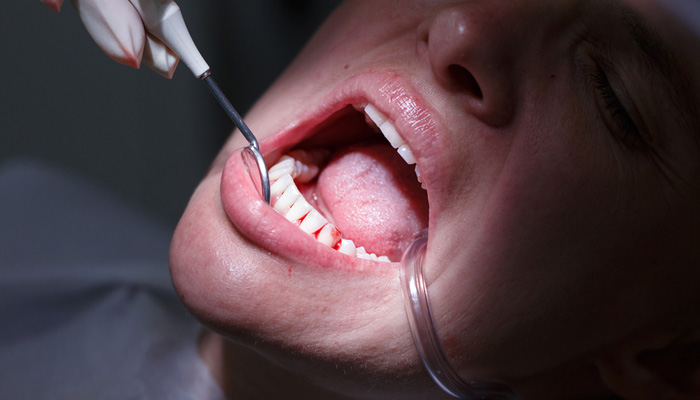Shutterstock
Scientists have found evidence that the key bacteria that causes gum disease, Porphyromonas gingivalis, may also be a key factor in spurring Alzheimer’s disease.

In the wake of this new discovery, a new drug is being developed that could potentially stop or reverse Alzheimer’s, as well as, lead to a vaccine against the disease.
According to the Centers for Disease Control and Prevention (CDC), deaths related to Alzheimer’s disease have increased over the past sixteen years among both sexes, every race, and ethnicity, with about 25% of people who have the disease end up dying from it. The CDC says Alzheimer’s is currently the sixth leading cause of death in the United States.
The new study was published in the journal Science Advances, and it was privately sponsored by a San Francisco-based biotech startup, Cortexyme Inc., whose co-founder is intrigued by the idea that Alzheimer’s could have an infectious cause.
Scientists have found that the bacteria responsible for causing gum disease, Porphyromonas gingivalis, to be present in the brains of people who have Alzheimer’s disease.
The researchers found toxic enzymes – called gingipains – that Porphyromonas gingivalis uses to consume human tissue in 96% of the 54 Alzheimer’s brain samples they examined.
Further, the researchers discovered that people who experienced a more severe cognitive decline due to Alzheimer’s had more amyloid and tau accumulations, also had higher levels of Porphyromonas gingivalis and gingipains.
Also studying mice, the researchers also found this bacteria triggers changes in rodents’ brains that are typical of Alzheimer’s. The bacteria causes mice to experience Alzheimer’s like brain inflammation and neural damage.
What’s most concerning is the fact that around one-third of all people have gum disease. And if you have bleeding when you brush your teeth – you may want to see a dentist right away.
As a side note, dentists and medical professionals have found a link between gum disease and type 2 diabetes. It has been noted that when gum disease is treated and diminished, a person’s type 2 diabetes symptoms will improve accordingly.
A new drug is being developed to block the toxins of Porphyromonas gingivalis (also referred to as P. Gingivalis), and is entering major clinical trials this year.
The new research shows that this drug may have the potential to stop or even reverse Alzheimer’s. It also may be possible to develop a vaccine.